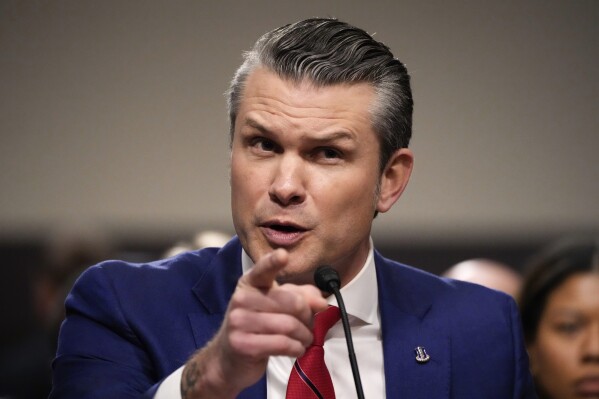Defense Secretary Pete Hegseth and his team have reportedly been directed to stop using polygraph tests to track down media leaks, following a complaint to the White House from a senior adviser, according to The Washington Post.
Patrick Weaver, a longtime Republican staffer and adviser to Hegseth, raised concerns to White House officials earlier this year about the possibility of being asked to take a polygraph test. Hegseth’s team had begun administering such tests in April to individuals within the secretary’s orbit.
In response, a person close to the administration reportedly made a call to intervene and end the polygraph screenings. The Washington Post wrote:
“The White House intervention, which has not previously been reported, came in the form of a phone call by an individual close to the administration after Hegseth’s team had begun administering polygraph tests to people around the defense secretary in April, according to people familiar with the matter, who declined to identify the individual.”
Several tests had already been conducted over the course of a few weeks before the program was shut down. These actions had been approved by Hegseth and advised by Tim Parlatore, who has served both as Hegseth’s private attorney and part-time military aide.
Weaver, who served in the Trump administration on the National Security Council and in the Department of Homeland Security, remains a key adviser to Hegseth. He is known as a Trump loyalist and an associate of White House Deputy Chief of Staff Stephen Miller. Weaver also has a reputation as a hardliner on immigration.
By the time the complaint reached the White House, members of the Joint Service Interagency Advisory Group (JSIAG)—a team in Hegseth’s front office focusing on countering drug cartels and securing the southern border—had already undergone polygraph testing, according to sources familiar with the situation.
Pentagon spokesman Sean Parnell responded strongly to the media attention:
“The Department will not comment on an ongoing investigation,” Parnell said in a written statement. “The Fake News Media’s obsession with months old workplace gossip is a reflection of the sad and pathetic state of ‘journalism’ in Washington.”
Back in April, Hegseth fired three aides—Dan Caldwell, Darin Selnick, and Colin Carroll—over suspected leaks. Despite those firings, unauthorized disclosures have reportedly continued.
As previously reported by Cassandra MacDonald, the Pentagon launched an investigation in March into leaks involving sensitive national security information. The probe may have included the use of polygraphs among Department of Defense personnel.
Joe Kasper, Hegseth’s then-chief of staff, issued a memo informing DOD staff that they could be subjected to lie detector tests.
“Recent unauthorized disclosures of national security information involving sensitive communications with principals within the Office of the Secretary of Defense (OSD) demand immediate and thorough investigation,” the memo stated.
“I request the prompt assistance of your Director for Defense Intelligence (Counterintelligence, Law Enforcement, and Security) to support OSD in leading an investigation into unauthorized disclosures in coordination with the appropriate Department of Defense (DoD) stakeholders, including those responsible for maintaining and overseeing information security systems and in coordination with federal partners as required.”
The timing of this announcement led to speculation that it was related to a New York Times story suggesting Elon Musk was scheduled to receive a classified briefing at the Pentagon on potential war strategies with China. Musk and President Donald Trump both denied the story. Musk labeled it “pure propaganda” and called for the prosecution of those responsible for leaking “maliciously false information” to the press.
Other Trump administration officials, such as FBI Director Kash Patel, have also used polygraph tests in attempts to root out internal leakers.
 Telegram is where we really talk. Don't miss out!
Telegram is where we really talk. Don't miss out!







